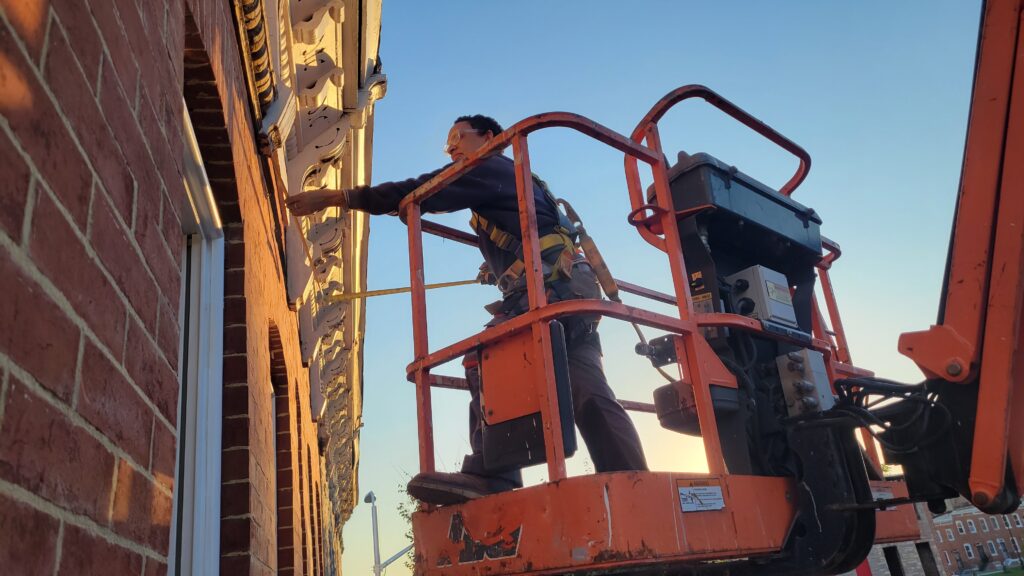Black Women Build – Baltimore (BWB-B) is a homeownership and wealth-building initiative that trains Black women in residential construction skills by restoring vacant and disinvested houses in West Baltimore. The homes are available for purchase to those who have contributed time and work to the renovations.
In December 2020, Abell awarded a $30,000 grant to BWB-B for down payment and closing cost assistance for three first-time homebuyers purchasing houses renovated by the organization. Two houses were fully renovated and sold in August 2021, and the rehabilitation and purchase of the third house was completed in early 2022. Purchase prices for the renovated houses ranged from $80,000 to $95,000. The buyers each had incomes less than 80% of the area median, and monthly mortgage payments are less than $500 per month for each purchaser. In June 2022, Abell awarded a subsequent grant of $110,000 to support purchasers with down payment and closing cost assistance for an additional seven houses under construction and several others under acquisition.
As an experienced carpenter and builder, executive director Shelley Halstead provides construction skills training to women she recruits to renovate the houses for purchase. During the training and home purchase preparation period, each participant is required to make and keep a budget; learn the importance of credit and how to improve a credit score; and work with a financial counselor to ensure pre-qualification for a mortgage loan.
The goals of the project are to address persistent housing vacancy through renovation; build the knowledge and technical skills of Black women in construction and home systems maintenance;
ensure more Black women and their families achieve pride of ownership and housing stability; and create the potential for wealth accumulation through growth in home equity.
“Black Women Build – Baltimore helps women learn skills and purchase homes – yes. But its critical beneficiaries are legacy residents who again have neighbors on their block.”
– Annie Milli, Executive Director of Live Baltimore
